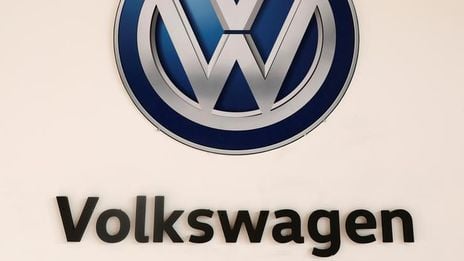Volkswagen works essentially in two areas to reduce CO2 emissions: On the one hand, the company is beginning with full-scale, mass market production of e-mobility vehicles, for the first time. With the launch of the ID. family, the Group will be the first manufacturer to offer a wide range of all-electric compact, small and luxury vehicles to a broad market. At the same time, the Group continues to optimize its petrol and diesel engines, as well as developing numerous hybrid models.
In detail:
- By 2023, the Volkswagen Group will be investing around 30 billion euros in electric mobility, launching around 70 new electric vehicles on the market - including numerous models based on the new Modular Electric Drive Kit (MEB). With the CO2 target of 95 grams by 2020/21, the Group is well on its way to achieving its ambitious target - and is making considerable efforts to achieve that. Source: Volkswagen Group
- Newly registered passenger cars from Volkswagen Group now consume 25 per cent less fuel than in 2007. Source: Volkswagen Group
- According to official data from the German Motor Vehicle Federation (KBA), last year Volkswagen was the largest manufacturer of new pure electric car registrations in Germany. In 2018, 6,799 fully electric Volkswagen passenger vehicles were registered in Germany, out of a total of 36,062 pure-electric passenger cars. This means that Volkswagen accounted for 18.9 per cent of this future segment. Source: German Motor Vehicle Federation (KBA)
- Over the past 15 years, the Volkswagen Group has reduced pollutant emissions from diesel and petrol engines by 84 per cent 60 per cent, respectively.
- The CO2 balance of the diesel engine is 15 per cent lower than that of other combustion engines. Comparable fuel savings in hybrid vehicles can only be achieved with much greater technical effort.
- The latest generation of diesel engines (EA288 evo) from the Volkswagen Group have even lower emission levels and reduce consumption and CO2 emissions by a further 10 per cent. Source: Volkswagen Group
But it is not only low-consumption engines and all-electric models that serve the goal of saving CO2. It is just as important for the Volkswagen Group to conserve resources at the production stage. For this reason, the company also uses sustainable materials everywhere, such as renewable raw materials. The aim is to reduce CO2 emissions over the entire value chain and lifecycle.
With the ID.31, Volkswagen offers the world's first balance-sheet-neutral CO2-neutral electric car. This is possible because both the production of the battery cells and the vehicle production function with 100 percent green electricity. Volkswagen offsets unavoidable emissions with climate protection projects. During the use phase, it is up to the customer to also use green electricity for charging - Volkswagen makes suitable offers via its subsidiary Elli ('Electric Life'). To mark the launch of ID.3, the brand is also launching the matching wallbox on the market: the ID. Chargers will be able to load their electric cars quickly and conveniently at home in the future.
Attachments
- Original document
- Permalink
Disclaimer
Volkswagen AG published this content on 20 September 2019 and is solely responsible for the information contained therein. Distributed by Public, unedited and unaltered, on 20 September 2019 09:46:09 UTC




